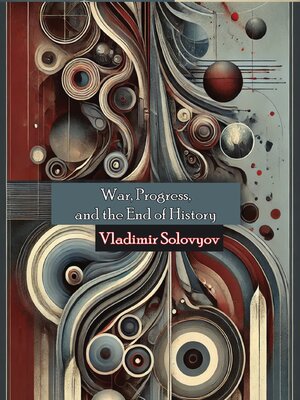
Sign up to save your library
With an OverDrive account, you can save your favorite libraries for at-a-glance information about availability. Find out more about OverDrive accounts.
Find this title in Libby, the library reading app by OverDrive.



Search for a digital library with this title
Title found at these libraries:
| Library Name | Distance |
|---|---|
| Loading... |
War, Progress, and the End of History by Vladimir Sergeyevich Solovyov is a profound philosophical work that explores the moral, spiritual, and political dimensions of human history, offering a compelling reflection on war, progress, and humanity's ultimate destiny. Written by one of Russia's most influential philosophers, Solovyov's work combines theology, ethics, and social criticism, raising questions about the meaning of history and the future of civilization. Solovyov critically examines the idea of progress, questioning whether material and technological advancements alone lead to true human flourishing. He warns that unchecked progress, detached from moral and spiritual values, risks leading humanity toward greater conflict and destruction. His reflections on war are particularly striking, as he views it not just as a political phenomenon but as a manifestation of deeper ethical and spiritual crises within human society. At the heart of the book is Solovyov's belief in the need for moral renewal and the integration of divine truth into human affairs. He argues that history will culminate not in endless progress but in an eschatological fulfillment—a moment when divine justice and harmony are realized at the end of history. Through this vision, Solovyov offers both a critique of modern society and a hopeful outlook for the future, emphasizing the role of love, unity, and spiritual transformation in shaping a better world. War, Progress, and the End of History remains a thought-provoking work for readers interested in philosophy, theology, and political theory. Solovyov's ideas continue to resonate in contemporary discussions on the limits of progress, the nature of conflict, and the moral direction of humanity. His blend of intellectual rigor and spiritual insight offers a timeless perspective on humanity's struggles and aspirations in the pursuit of a just and meaningful future.







